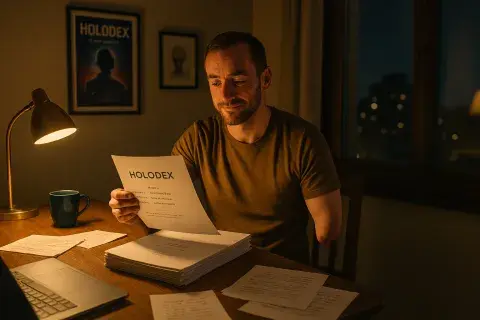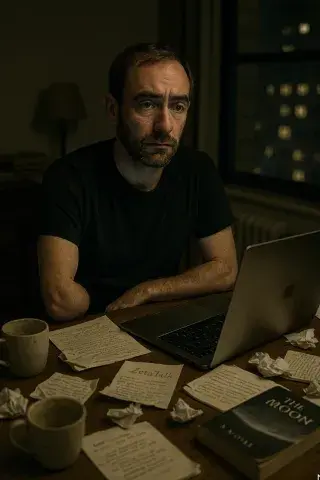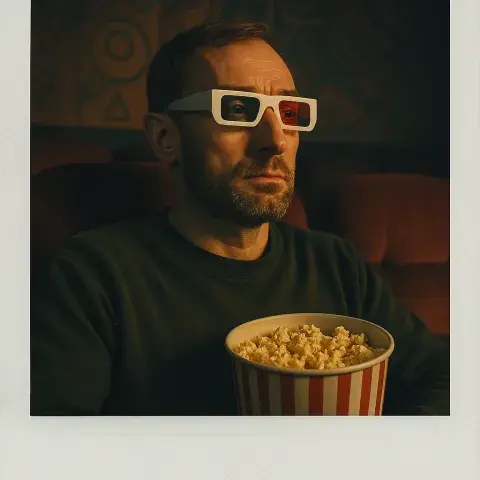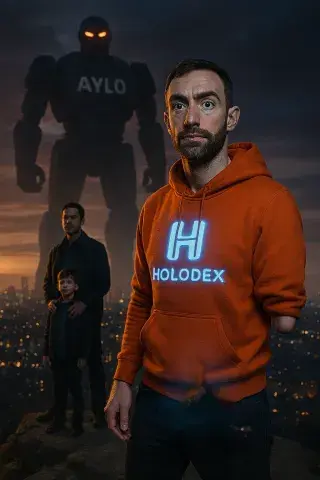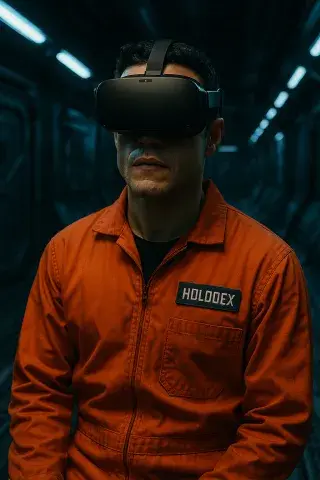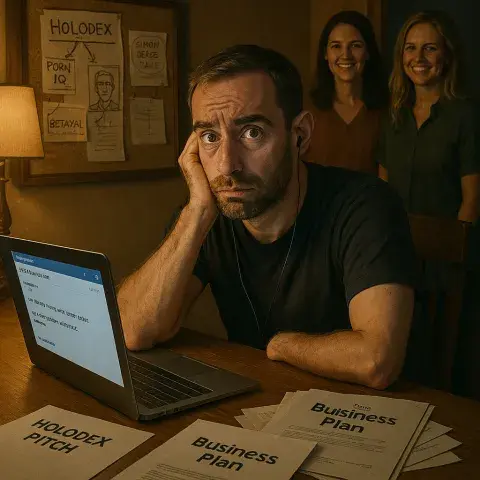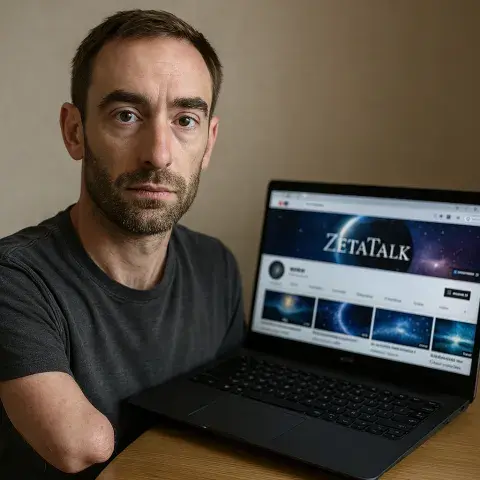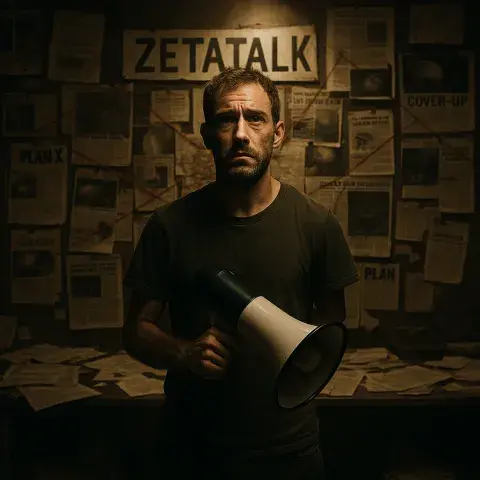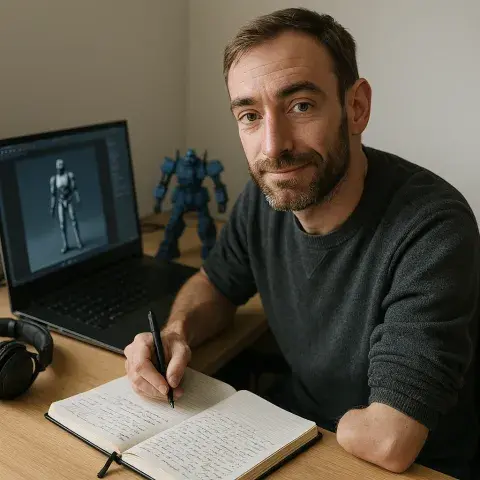Chapter 45 - Holodexxx
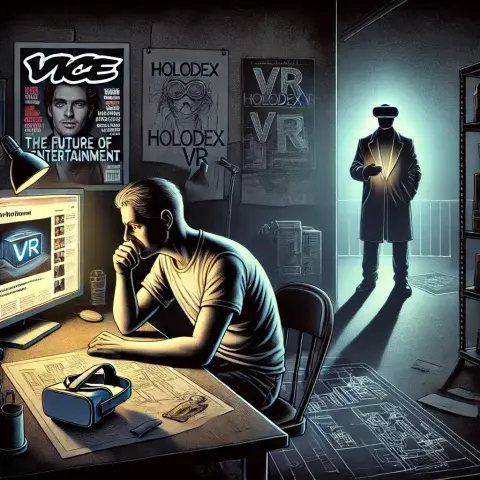
Things took an even darker turn in 2016 when an unexpected email landed in my inbox. It was from a Holodex fan, asking about our “new VR technology.”
New VR technology? This was news to me. Intrigued and slightly alarmed, I dug deeper, only to be presented with an article in Vice magazine. There it was: Holodex VR. The name, the concept—it was everything I had dreamed of, the kind of groundbreaking innovation that had lived rent-free in my head for years. And the Vice article? The kind of glowing publicity I’d spent sleepless nights chasing.
But this wasn’t my doing. I had no part in it. Somehow, my vision had materialised without me.
Then the penny dropped: Derek. It was glaringly obvious who was behind this. He had taken the Holodex name and leveraged it for his own initiative, using his roster of performers to populate the platform. It wasn’t just a betrayal of trust—it was a knife to the gut, a bitter reminder of how easily ideas can be stolen, twisted, and executed by those with more resources and fewer scruples.
Seeing someone else bring my idea to life was devastating. Holodex wasn’t just a project. It was my sanctuary, my obsession, my answer to the world. Watching it be appropriated, stripped of its soul, and marketed as someone else’s innovation left me seething. Worse, it reignited every frustration I’d ever felt about the project—the lack of funding, the struggles with recognition, and the bitter taste of unfulfilled potential.
The Vice article was a cruel irony—everything I had dreamed of, and yet a monument to someone else's gain at my expense. And there it was, under someone else’s name, as if I’d time-travelled into a version of my own success where I didn’t exist.
And you know what stings the most? It’s how excellent it all is.
Holodex VR wasn’t some half-baked knockoff—it was polished, ambitious, and clearly backed by a massive budget. They must have poured hundreds of thousands into bringing it to life, the kind of money I’d been chasing my entire life. Watching someone else have the resources to execute a vision that was fundamentally mine felt like salt in the wound.
But here’s the thing they probably learned the hard way: no matter how much money you throw at VR, unless you break through the uncanny valley, it just doesn’t stick. It doesn't feel real yet. And that’s always been the tragedy of rushing the dream—it’s not just the idea that matters, it’s the timing, the soul, the tech.
That’s why I’ve kept my eye on Unreal Engine 6. Not just as a developer, but as someone still carrying the original vision. When it drops, the line between fantasy and reality will finally blur in the way I always imagined Holodex could. The kind of immersion I dreamed of—the one they tried to replicate—will finally be within reach.
They fired too early. I’m still aiming.
Still, it doesn’t make it any less painful. Watching someone else run with your dream, even if they stumble along the way, leaves a mark. It’s a reminder of what could have been—if only the timing, funding, and opportunity had been different.
Next time the world sees Holodex, it’ll know whose hand built it.


